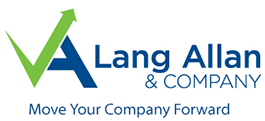As the end of the year approaches, now is the ideal time for business owners to finalize their financial records and prepare for the upcoming tax season. A proactive approach to year-end accounting can:
- Prevent unnecessary stress,
- Ensure accuracy and
- Help you take advantage of potential tax benefits.
Checklist
To help you stay on track, here’s a checklist of crucial accounting tasks to complete before tax season. Download this Checklist to help you plan.
1. Reconcile All Your Accounts: Reconciliation is vital in accounting, not just bookkeeping. Compare your accounting records with bank and credit card statements to ensure every transaction has been accurately recorded. Identifying and resolving inconsistencies now will prevent confusion and potential tax filing errors.
2. Organize Your Receipts: Proper documentation is the cornerstone of accurate accounting. Gather all business-related receipts, both physical and digital. Using a mobile app or scanning tool to digitize receipts will help you keep them safe and easily accessible. Storing these documents in a cloud-based folder makes future reference, auditing, or tax filing much more efficient.
3. Review Invoices and Accounts Receivable: Review your outstanding invoices and follow up with clients who have unpaid balances. Closing out outstanding invoices not only boosts your cash flow before the end of the year but also ensures that your revenue is correctly reflected in your financial statements. This step is crucial for accurately presenting your business’s profitability.
4. Run Key Financial Reports: Generate and review essential financial reports such as the Profit & Loss statement, Balance Sheet, and Cash Flow statement. These reports provide a comprehensive overview of your company’s financial health and are critical for accurate tax preparation. These reports help identify opportunities for tax deductions and other planning strategies.
5. Collect All Tax Documents: Proper preparation requires collecting all relevant tax documents, such as W-2 forms for employees, 1099 forms for contractors, and any records for deductible expenses like mileage, office supplies, and utilities. Having these documents ready will ensure a smoother tax filing process and help avoid any last-minute rush.
6. Plan for Next Year: Use this year’s financial data to set goals for next year. Draft a budget and outline strategies for business growth 2025 based on trends you’ve observed. Practical year-end accounting helps you make informed financial decisions, identify potential cost-saving opportunities, and set realistic goals for the future.
Taking care of these accounting tasks will make the tax season much smoother and ensure your financial records are in top shape. This proactive approach helps you reduce stress, maximize potential deductions, and start the new year with clear and organized finances.
Ready to get started?
A little preparation now can save significant time and hassle later. If you need help with any of these tasks, contact our accounting team—we’re here to make your tax season as efficient and stress-free as possible.
